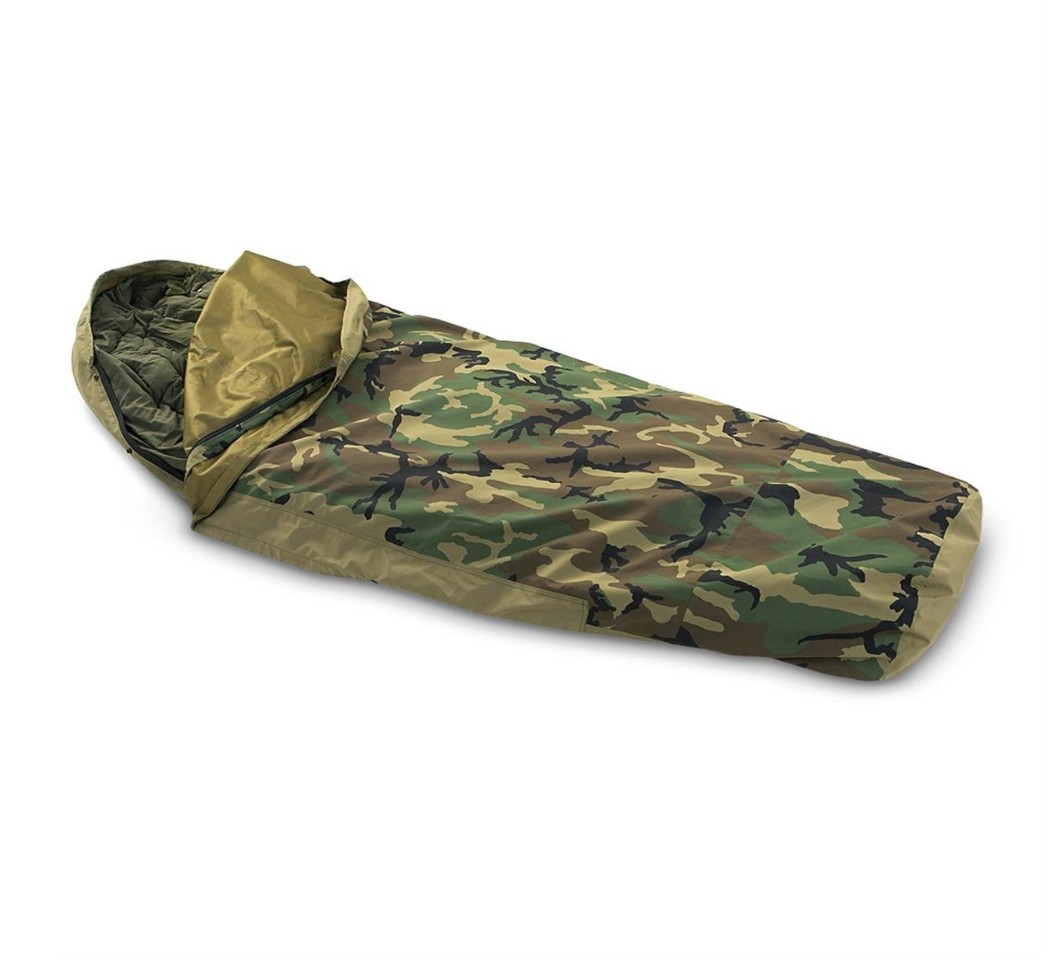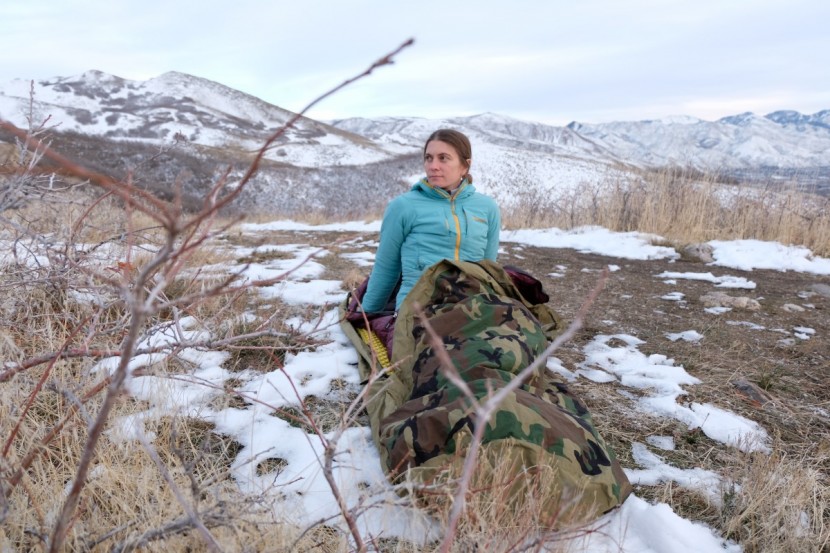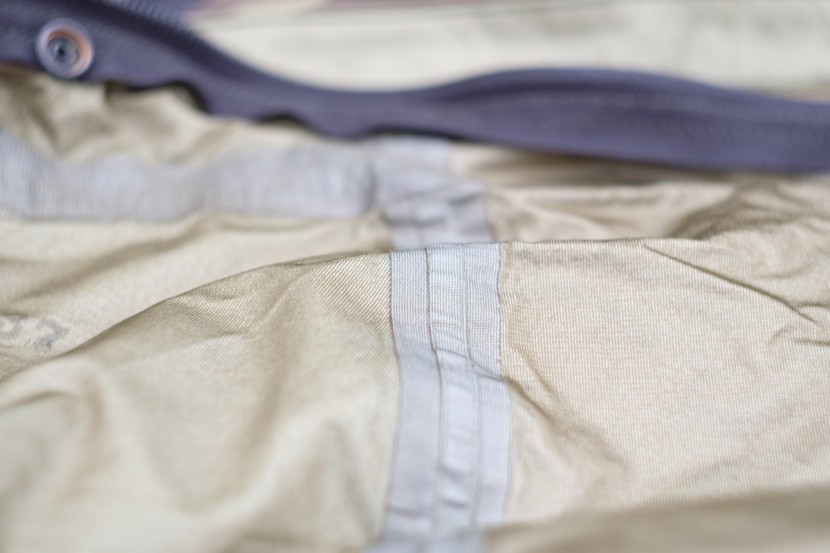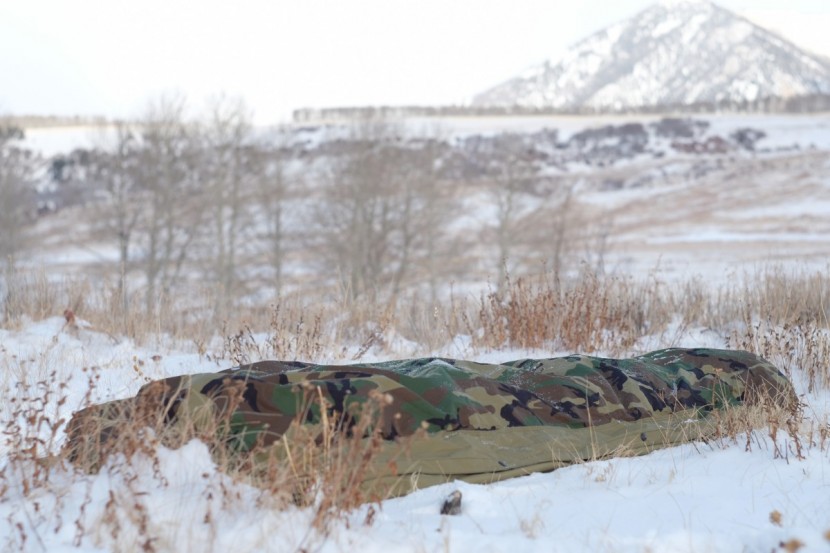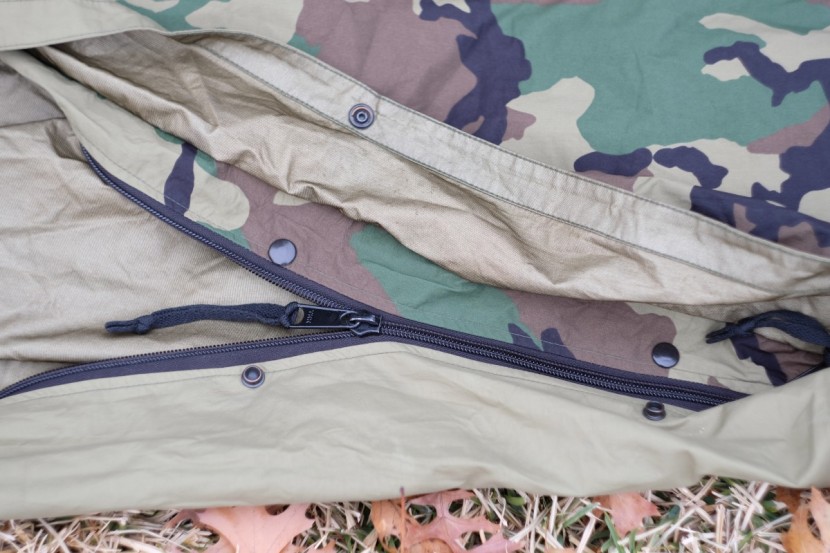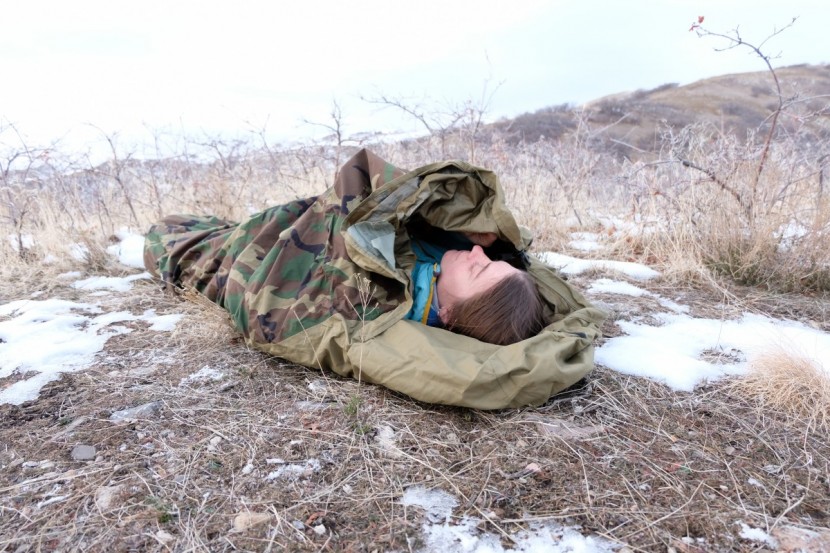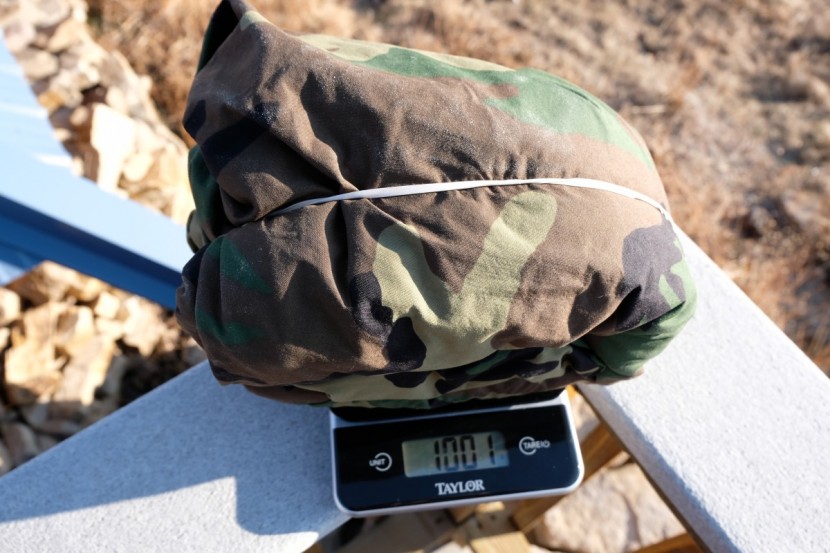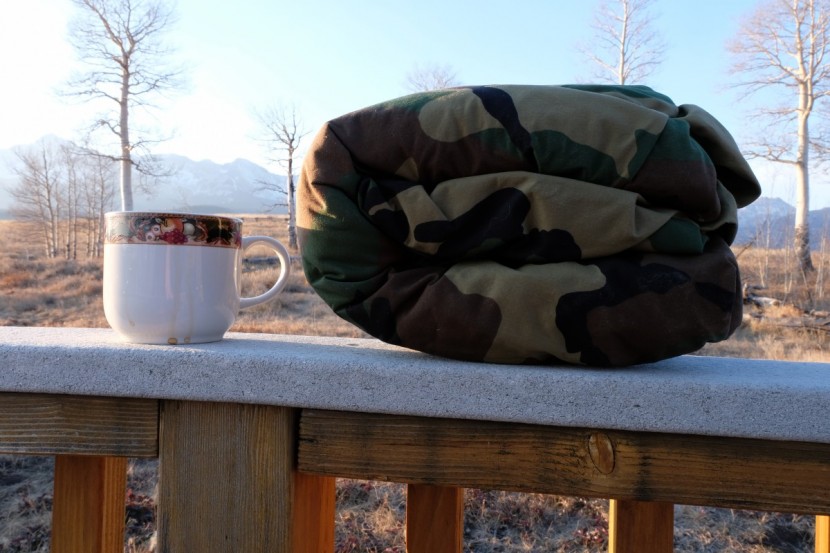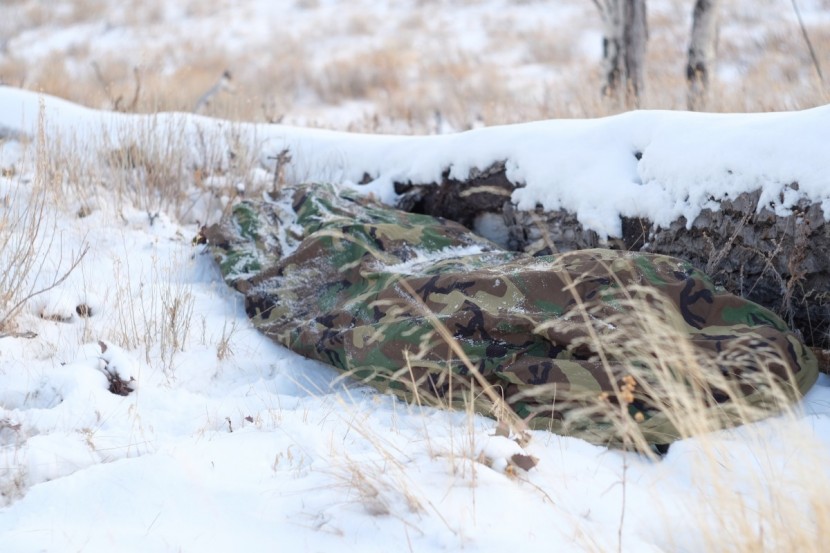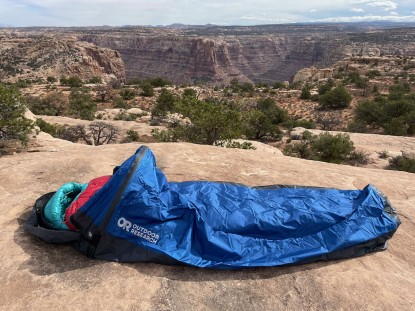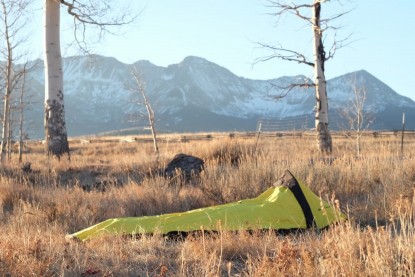Tennier Woodland Camouflage Waterproof Bivy Cover Review
Our Verdict
Our Analysis and Test Results
While some people might write off this lesser known brand, their camo bivy sack offers some solid construction and protection from the elements. Tennier Industries claims their four-piece sleep system (with a Tennier sleeping bag, intermediate bag, and bivy) can keep you comfortable to -50 degrees. While they might make some outlandish claims, the waterproof bivy component does a decent job of shielding the user from inclement weather, while taking the bite out of the cold.
Weather Resistance
After spending night after night of wet, sub 30-degree temps in the Woodland bivy, we concluded that the Woodland did a great job of keeping us warm and dry, even during times of blowing rain and snow. The canvas material has taped seams and a waterproof treatment, making the shell a solid shield against the elements.
While we wouldn't recommend attempting to use this bivy in the advertised -50 degrees Fahrenheit, it did do a pretty good job adding 5 or 10 degrees of rating to our sleeping bag. Our complaints with weather resistance are with the zipper/snap system. The zipper welcomed water in when rain blew against it, and the snaps were painfully hard to use when we had cold hands. If you're looking for ultimate weather protection, we like the OR Alpine, as it offers weather protection on a different level than the Woodland and at a more user-friendly weight.
The heavy canvas takes the power out of the wind and is pleasantly quiet compared to some of the loud, crinkly polymers used in the other models. If you're willing to sacrifice the weight to haul this thing around, you'll be rewarded with a high level of wind, rain, and snow protection.
Ventilation
The Woodland has several different configurations possible when it comes to the venting setup. The two sets of buttons allow you to have the entire bivy snapped together while being unzipped to allow for maximum ventilation without the worry of the bivy blowing open during the night. We like the ability to batten down the hatches and have the bag completely zipped and buttoned to keep wind and weather out.
It has to be said that every bag we tested collected moisture on the inside. The amount seemed to be a combination of outside air temperature and how breathable the bivy material was. The Woodland was right in the middle of the back with condensation collection. We would see moisture in the shell of our sleeping bag, but it wasn't interfering with our night's rest. All in all, the ventilation is above average.
Comfort
We noted several positive aspects regarding the comfort of the Woodland. It is by far the quietest bivy of the eight we tested. The remaining seven models range from moderately crinkly to the Frog Tact, which sounds like a plastic bag caught in a hurricane all night long. If you're a light sleeper and you find crinkly nylon noises are something you are sensitive to, this might be a good option. We had ample space to fit a regular length Z-rest sleeping pad in addition to our 30 degrees down sleeping bag. There was plenty of room for our 5'11" 180 lb tester to toss and turn all night without being excessively restricted.
Weight
While there was no pole or stakes included, it was the heavyweight of the group. The beefy construction, including a heavy-duty metal zipper, metal snaps, and waterproofed canvas, made for a heavy but incredibly durable bivy sack. While many of the contenders require careful site selection, for fear of poking a hole in the precious lightweight material, this bivy could be thrown down anywhere without worrying about a twig poking through.
It's hard to justify hauling around this 2.2-pound bivy for anything other than the shortest hikes. Consider that our testers Western Mountaineering sleeping bag, the excellent Sierra Designs Backcountry Bivy, and our Z-Rest sleeping pad combined still weigh less than the Tennier Woodland Bivy. While the weight was off-putting for our “light duty” gear tester, perhaps the durability is just what some are looking for.
Packed Size
Built with heavy-duty canvas, taped seams, an extra beefy YKK zipper, and complete with copper snaps, you'll have to have a suitably large pack to accommodate the girth of this bivy. The biggest downside of the weatherproofed canvas is its inability to compress unlike the rest of the testing field comprised of lightweight polymers.
Best Applications
This thing is at home is brambly, harsh conditions, and is probably best suited for those accessing a remote area by four-wheeler or vehicle and don't want to fuss with a tent. The highlights of this bivy are how easy it is to throw down on the ground for a few hours of sleep, and the peace of mind knowing that you aren't going to damage its fragile ego just by pitching it on some thorns. We wouldn't recommend utilizing this bivy for your next ultralight through hike.
Value
For its list price of $148, we feel that you can find a bivy that outperforms the Woodland Bivy in every way. The MSR AC Bivy and the Sierra Designs Backcountry Bivy both come to mind. These two bivies are incredibly lightweight and offer similar protection from the elements as the Tennier. What the Tennier does have is durability, and if that is your number one concern, the price-tag is probably worth it for you. It is very unlikely that you will destroy this bag or have a zipper run off track. This thing is built to last.
Conclusion
Supposing this picture gives you the warm fuzzies and makes you want to drop everything, load the 4-wheeler, and head to Montana for some sort of hunting opportunity, this is probably the bivy for you. It offers fantastic durability, decent weather protection, and several added degrees of warmth.


